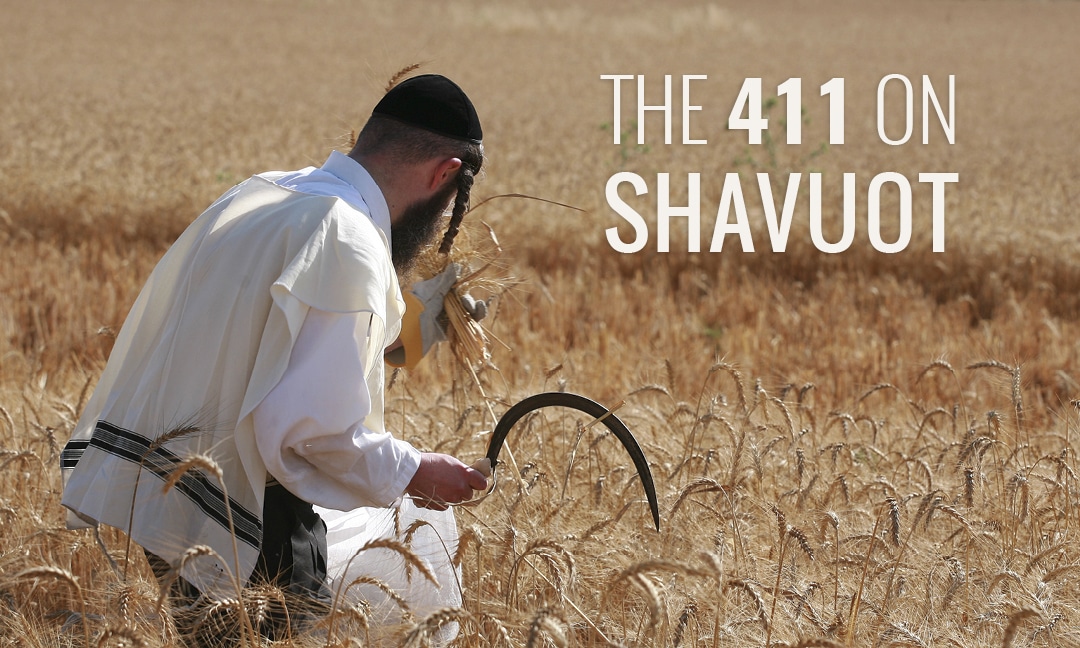The 411 on Shavuot
Chad Schaeffer

Shavuot commemorates the revelation of the Torah on Mt. Sinai to the Jewish people and occurs on the 50th day after the 49 days of counting the Omer. The counting of the Omer is an important verbal counting of each of the forty-nine days between the Jewish holidays of Passover and Shavuot. Men typically don’t shave or get haircuts during this time, as stated in the Hebrew Bible. Shavuot is one of the three biblically based pilgrimage holidays known as the shalosh regalim. It is associated with the grain harvest in the Torah.
During the course of the holiday, Jewish people don’t go to work, drive, write, or use electric devices. We are permitted to cook and to kindle a stove with a flame that existed before the holiday (or which was lit from such a flame).
Shavuot eve
It is customary to decorate synagogues and homes with flowers and boughs.
Women and girls light candles this night to usher in the holiday. I’m not sure of the reasoning for this, but it is a tradition that most synagogues follow. After the holiday evening prayers, a festive holiday meal, complete with the recitation of the holiday, kiddush is enjoyed. (Kiddush is a prayer and blessing over wine, performed by the head of a Jewish household at the meal ushering in the Sabbath or a holy day, or at the lunch preceding it. On this night it is customary to remain awake and study the Torah until dawn. Every year it is fun to see the kids try to stay up. Some make it but most fall asleep. Typically most synagogues will bring in a scholar and have him or her teach to those in the synagogue.
First day of Shavuot
Torah reading: Exodus 19:1–20:23; Numbers 28:26–31 Haftarah: Ezekiel 1:1–28; 3:12
Reading of the Ten Commandments is done on the first day of Shavuot.
All men, women, and children go to the synagogue to hear the reading of the Ten Commandments. At many synagogues, the youngest children recite the Ten Commandments. This is in commemoration of the Jewish people declaring, “Our children are our guarantors [that we will keep the Torah].” They do this because there is a midrash which states that this is the only guarantee acceptable to G‑d.
In the past, priests would bless the congregation with the priestly blessing during the Musaf prayer. Many communities chant the Akdamut poem before the reading of the Torah.
Kiddush is recited and a holiday meal follows. It is customary to eat dairy foods this day.
Candle-lighting, from a pre-existing flame, occurs after nightfall. Whoever will say yizkor lights a yahrtzeit candle, also from a pre-existing flame. After the holiday evening prayers, people have another festive holiday meal, complete with the recitation of the holiday kiddush.
Second day of Shavuot
Torah reading: Deuteronomy 15:19–16:17; Numbers 28:26–31 Haftarah: Habakkuk 2:20–3:19
The Yizkor memorial service is recited (and charity is pledged usually) for the souls of departed loved ones. Kiddush is recited and a holiday meal follows. Some communities have the custom to read the Book of Ruth on the second day of Shavuot. The holiday ends at nightfall.
![]()